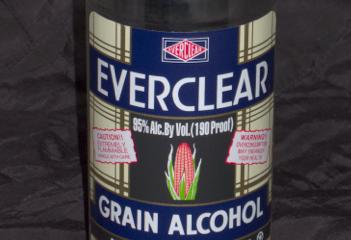In an attempt to curb alcohol abuse on Maryland’s college campuses, grain alcohol containing 95 percent alcohol by volume, or 190-proof, could be banned in Maryland by July 1. A bill that bans the sale and exacts penalties passed the Senate Health, Education and Environmental Affairs Committee last Tuesday by a 7-2 vote.
“SB75 seeks to address the dangerous problem of excessive drinking on our college campuses,” said the bill’s sponsor, Sen. Richard Madaleno at a Jan. 23 hearing–quoting statistics from the Johns Hopkins Bloomberg School of Public Health. “Each year an estimated 1,825 college students die from alcohol related injuries, while 599,000 are injured, 696,000 are hit or assaulted, and 9,000 are victims of sexual assault or date rape by another drinking college student. Grain alcohol plays a dangerous role in these statistics as an odorless and colorless toxin that easily mixes with other beverages that conceal its potency.”
Madaleno claimed that one bottle cap full was equivalent to a can of beer or a glass of wine.
At least 16 states, including neighboring Pennsylvania, Virginia and West Virginia have banned or restricted the sale of grain alcohol and other 190-proof spirits.
The Maryland Collaborative to Reduce College Drinking and Related Problems, a network of ten colleges and universities in Maryland, is lobbying for passage of the bill.
Bills in 2009 and 2010 passed the Senate but failed to clear the House. John Olderman, chief of staff for Madaleno, said the chance of passage this year was “very good.”
An analysis from the Department of Legislative Services reports that alcohol tax revenue would be insignificantly effected by passage of the bill–but general fund revenues could increase slightly due to penalties imposed on merchants violating the ban.
Sen. J.B. Jennings, R-Harford, one of only two committee members opposed to the bill, said the type of alcohol isn’t the issue and that education and personal responsibility would better address alcohol abuse on college campuses.
“If it’s not grain alcohol it will be something else next week,” Jennings said in a brief phone interview with the Spy. “There are other alcohols available to them that run up to that level. Why are we singling out just one type.”
Kent County Sheriff John F. Price said he supports the ban as a public safety issue.
“I would certainly support prohibiting the sale in our retail establishments,” Price told the Spy on Monday. “It can have a devastating affect on our college campuses for inexperienced drinkers who want to experiment with alcohol. I see it as a public safety issue and hopefully the legislature will be successful in making it illegal in Maryland.”



Write a Letter to the Editor on this Article
We encourage readers to offer their point of view on this article by submitting the following form. Editing is sometimes necessary and is done at the discretion of the editorial staff.